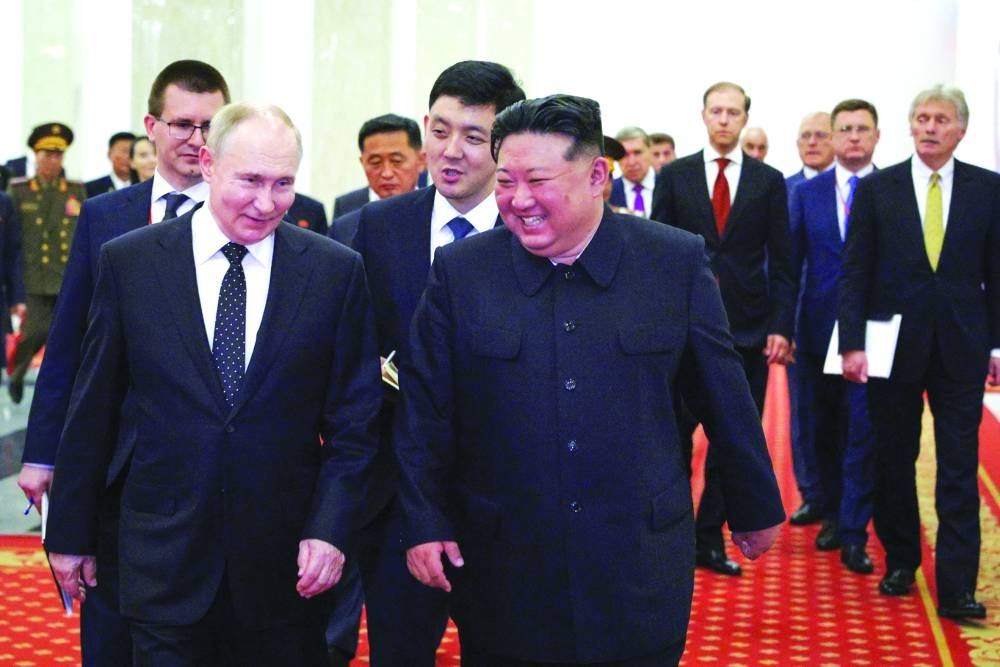Russian President Vladimir Putin yesterday signed a deal with North Korea’s Kim Jong-un that included a mutual defence pledge, one of Russia’s most significant moves in Asia for years that Kim said amounted to an “alliance”.
Putin’s pledge overhauls Russia’s entire post-Soviet policy on North Korea just as the US and its Asian allies try to gauge how far Russia could deepen support for the only country to have tested a nuclear weapon this century.
On his first visit to Pyongyang since July 2000, Putin explicitly linked Russia’s deepening of ties with North Korea to the West’s growing support for Ukraine and said Moscow could develop military and technical co-operation with Pyongyang.
After talks, they signed a “comprehensive strategic partnership” pact, which Putin said included a mutual defence clause in the case of aggression against either country.
“The comprehensive partnership agreement signed today provides, among other things, for mutual assistance in the event of aggression against one of the parties to this agreement,” Putin said.
He said Western deliveries of advanced, long-range weaponry including F-16 fighters to Ukraine for strikes against Russia breached major agreements.
“In connection with this, Russia does not exclude for itself the development of military-technical co-operation with the Democratic People’s Republic of Korea,” Putin said.
Kim praised Russia for making what he cast as an enormously significant strategic move to support North Korea, which was founded in 1948 with the Soviet Union’s backing.
Depending on the exact wording of the pact, which was not released, it could be a dramatic shift in the strategic balance in northeast Asia by placing Russia’s heft behind North Korea – which faces South Korea, backed by the US, across the heavily fortified demilitarised zone (DMZ).
While North Korea has a defence treaty with China, it does not have active military collaboration with Beijing like it has developed with Russia over the past year. North Korea also signed a 1961 treaty with the Soviet Union that included promises of mutual support in the event of an attack.
China, the North’s main political and economic benefactor, had no immediate response.

Russian President Vladimir Putin and North Korea’s leader Kim Jong-un attend a gala concert in Pyongyang yesterday.
